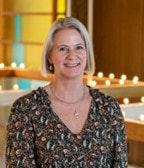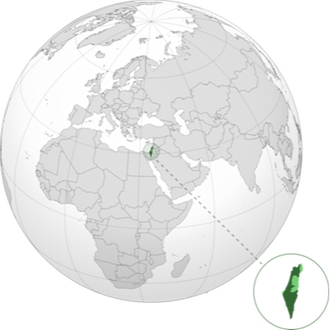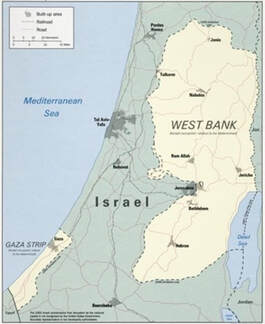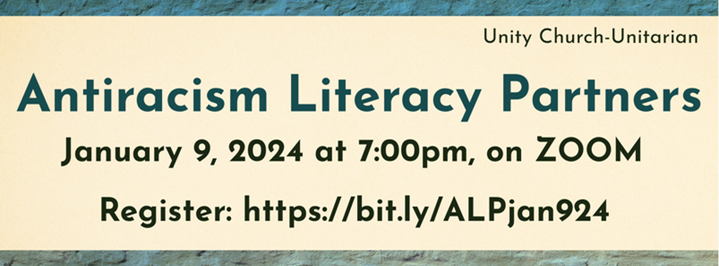|
Rev. Lara Cowtan, Minister of Congregational Care and Beloved Community Staff Team member  It had been almost twenty years since I had lived in Canada when I returned in 2019. In my absence, a new territory had been created, Nunavut (official language is Inuit), and what were once called the Queen Charlotte Islands had formally been renamed Haida Gwaii, in recognition of the Haida people who live there (official language is Haida). Special holidays had been created and awareness of native history, culture and tradition was growing. Land acknowledgement statements were commonplace at the beginning of any kind of public gathering. The Truth and Reconciliation Commission of Canada (2008 to 2015) brought about some major changes in laws, policies, and public awareness pertaining to Indigenous rights, equity, and inclusion. In 2014, the Canadian Unitarian Council (CUC) and Unitarian Universalist Ministers of Canada (UUMOC) issued a statement to the Truth and Reconciliation Commission. In it is a commitment to assemble and promote educational materials for congregations on the history and impact of the Indian residential school system, and to uphold the recommendations of the United Nations Declaration on the Rights of Indigenous Peoples. General public awareness about racism and oppression seemed to be on the rise, especially as immigrant communities from African and Asian nations grew, as did racially-motivated violent crime. Following the death of George Floyd in May 2020, the CUC issued a statement mourning the deaths of people of color, and hosted a series of conversations, workshops and roundtables to discuss and begin work to address systemic racism. A Dismantling Racism Study Group was formed, tasked with interviewing, assessing, and making recommendations to the CUC. We were all immersed in learning about the long history of anti-black racism and discrimination in Canada. Recommendations from the group are being implemented, including investment of resources at the national and congregational level, and creating/assembling antiracism material for education and worship for congregations. Then, in May 2021, the horrific discovery of the remains of 215 children buried in unmarked graves at the site of a former residential school in Kamloops, British Columbia shocked the nation. My heart broke wide open and joined with Indigenous communities as the news rolled through in a firestorm of grieving. This was just the beginning of a series of similar discoveries from other sites of some of the 140 Indian Residential Schools which operated across Canada from 1831 into the closing decades of the 20th Century. I was, at the time, serving as interim minister in Vancouver, British Columbia. There are three distinct tribes who have lived on the land where the city of Vancouver sprawls along the coast: the Musqueam, Squamish and Tseil-Watuth First Nations. Every worship service began with an acknowledgment of being uninvited residents on their land and of our responsibility to work to dismantle the ongoing impact of settler colonialism. Following the discovery, the acknowledgment went deeper to lift up the generational trauma of the victims and families of survivors of the residential school system, and the work of the congregation to be in good relationship with the areas native communities also deepened. Each year, September 30 marks the National Day for Truth and Reconciliation, an important step in reconciliation, and Orange Shirt Day, an Indigenous-led public commemoration of the tragic and painful history and ongoing impacts of residential schools. Approximately 150,000 Indigenous children were forcibly removed from their families, placed in residential schools, stripped of their culture, language and identities, their names changed, and hair shorn. They were forbidden to speak their own languages, suffered horrific abuses and poor conditions, and several thousand died. I was never taught a single thing about residential schools when I was in school. In the wake of this upswell of awareness, engagement, and response to the tireless work of leaders across Canada, on Saturday, November 27, 2021, 95% of the 104 Canadian Unitarian Universalist delegates to a special meeting of the CUC voted in favor of the motion to approve adding an 8th Principle to the current Seven Principles (bit.ly/cuc7prin) with language modified to the Canadian context. It reads:
Truth, healing and reconciliation, dismantling racism and oppressive systems of colonial and white supremacy is a long and deeply spiritual process of self-awareness and relationship-building. I am committed to the work of dismantling racism and systemic barriers to full inclusion in myself, in our congregations and in society at large. May we all continue to learn, grow heal, and live into the dream of beloved community.
0 Comments
Unity Antiracism Literacy Partners Ask: What? When? Where in the World? Shelley Butler, Beloved Community Communications and Antiracism Literacy Partners (ALP) Teams With a swift end to the conflict in Israel and Gaza nowhere in sight (not to mention other violence around the world and in our own neighborhood), if you’re like me, then you’re having trouble saying, “Happy New Year,” to friends and family. I found myself wishing people a “more peaceful” or “happier” new year and receiving similar sentiments. Since October 7, 2023, I have been reading, watching, listening, debating, and learning about Israel, Hamas, Palestine, and the 17.37 sq. mile Gaza Strip, as I suspect have most of us. The question that often calls us to action looms: What can I do? An article by Rabbi Emily Cohen stood out to me, and her words have become my mantra, “I will not lose my compassion for all: Israeli and Palestinian, Arab and Jew. I have found myself for these last weeks living in the ‘and,’ and I want to invite you to live there with me.” We, on the Antiracism Literacy Partners (ALP) Team, invite you to live in the “and” with fellow Unity congregants by delving into questions more deeply in small group spiritual practice. So, what does that mean exactly? Join us on Tuesday, January 9, 2024, at 7:00pm on Zoom (register here) to find out more about the new resource being offered, “We Cannot Turn Away: Engaging on Israel and Palestine.” Then, you will be able to sign up for a small group to discuss these four questions:
You’ve likely watched unspeakable violence unfold; heard phrases like “from the river to the sea” and “settler colonialism”; wondered about the difference between Jews and Zionists, and the difference between Hamas, Hezbollah, and the Palestinian Authority; been informed about antisemitic and Islamophobic harassment and violence; been surprised to find trusted leaders, groups, and organizations siding with Israelis or Palestinians; and felt perplexed by sorting out right from wrong when both sides are engaged in war crimes. News outlets and especially social media abound in information and misinformation, understanding and misunderstanding. There is much to sort out. The ALP program can’t promise to answer all the questions, but we do offer a starting point. Unlike most other ALP groups, we’ll offer you a resource guide with articles, news stories, UUA statements, links to short films and podcasts, and as always, recommendations to learn more, instead of a single book or podcast. Rather than choosing sides, we encourage you to enter with an open heart and mind into the complexity of the 3000-year history of the area; how our faith is responding; and thoughts on where we might go from here, including building bridges in time of war. Several of the resources provided, as well as a guide to “key terms,” have been provided by the UUA for just this purpose of congregations engaging on Israel and Palestine. As we start this new year that seems so filled with uncertainty, I’d like to offer you the blessing given me by a fellow BC Communications Team member, “May the New Year bring you and all of us new challenges and a good measure of joy.” The Antiracism Literacy Partners (ALP) program is a group spiritual practice that seeks to embody the values, mission, and ends of Unity Church; and specifically, this ends statement: Create brave space for racial healing and dismantling dominant culture. Learn more about the Antiracism Literacy Partners program, and the five resources offered in the January session. Contact ALP Team Leader Becky Gonzalez-Campoy with questions: [email protected].
|
Topics
All
Beloved Community ResourcesUnity Justice Database
Team Dynamics House of Intersectionality Anti-Racism Resources in the Unity Libraries Collection Creative Writers of Color in Unity Libraries The History of Race Relations and Unity Church, 1850-2005 Archives
July 2024
Beloved Community Staff TeamThe Beloved Community Staff Team (BCST) strengthens and coordinates Unity’s antiracism and multicultural work, and provides opportunities for congregants and the church to grow into greater intercultural competency. We help the congregation ground itself in the understanding of antiracism and multiculturalism as a core part of faith formation. We support Unity’s efforts to expand our collective capacity to imagine and build the Beloved Community. Here, we share the stories of this journey — the struggles, the questions, and the collaborations — both at Unity and in the wider world.
The current members of the Beloved Community Staff Team include Rev. Kathleen Rolenz, Rev. KP Hong, Rev. Lara Cowtan, Drew Danielson, Laura Park, Lia Rivamonte and Angela Wilcox. |


